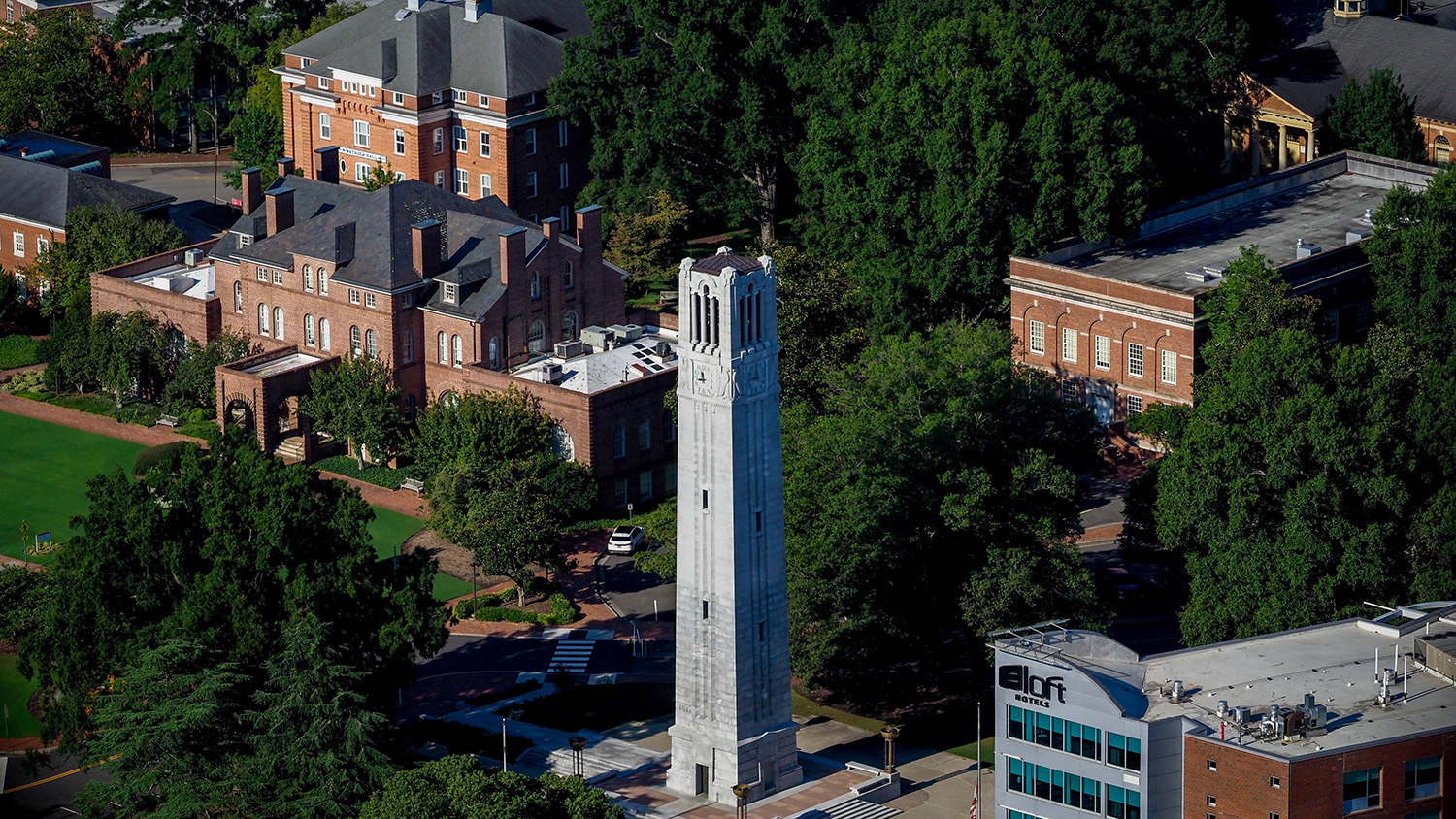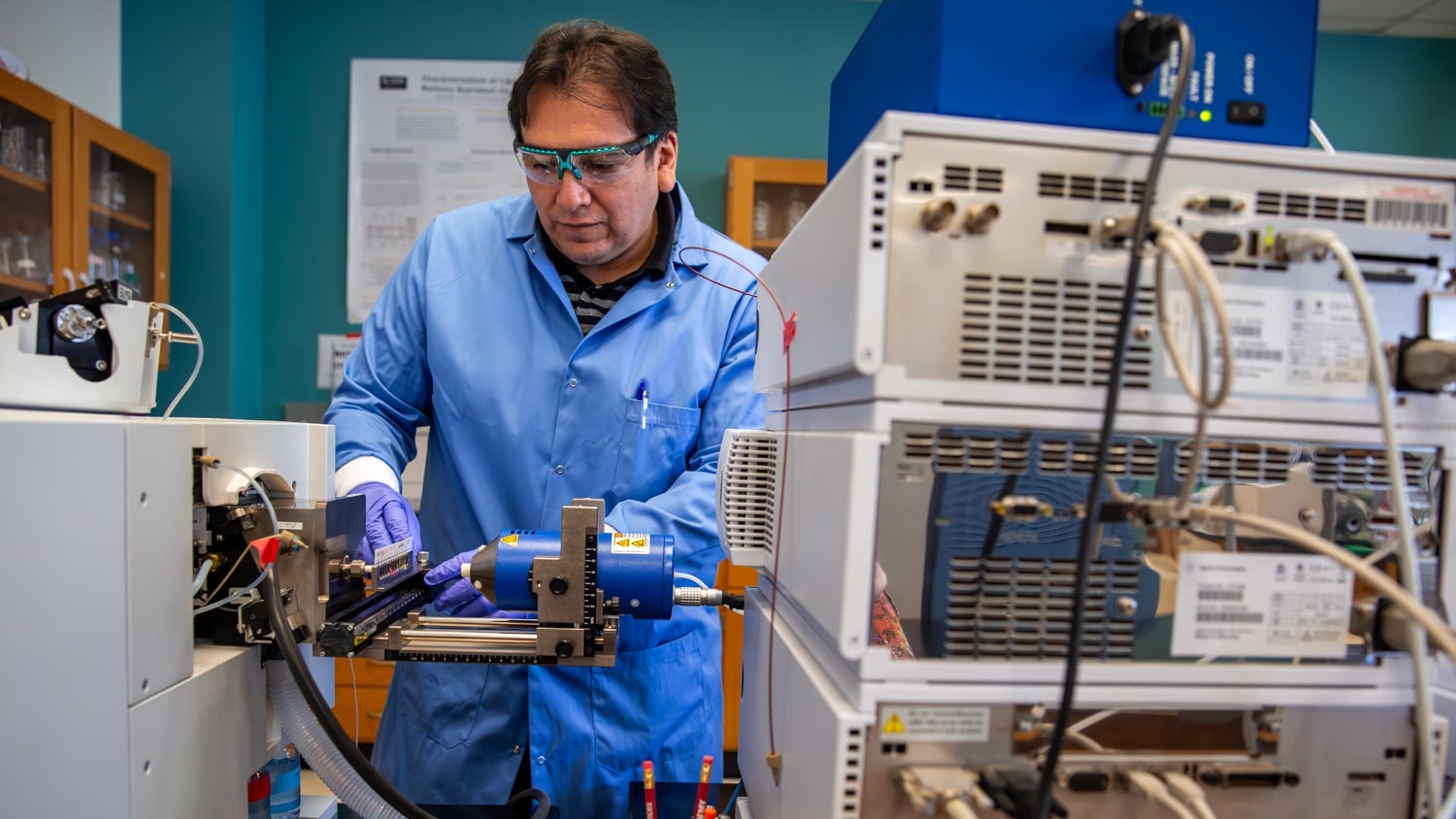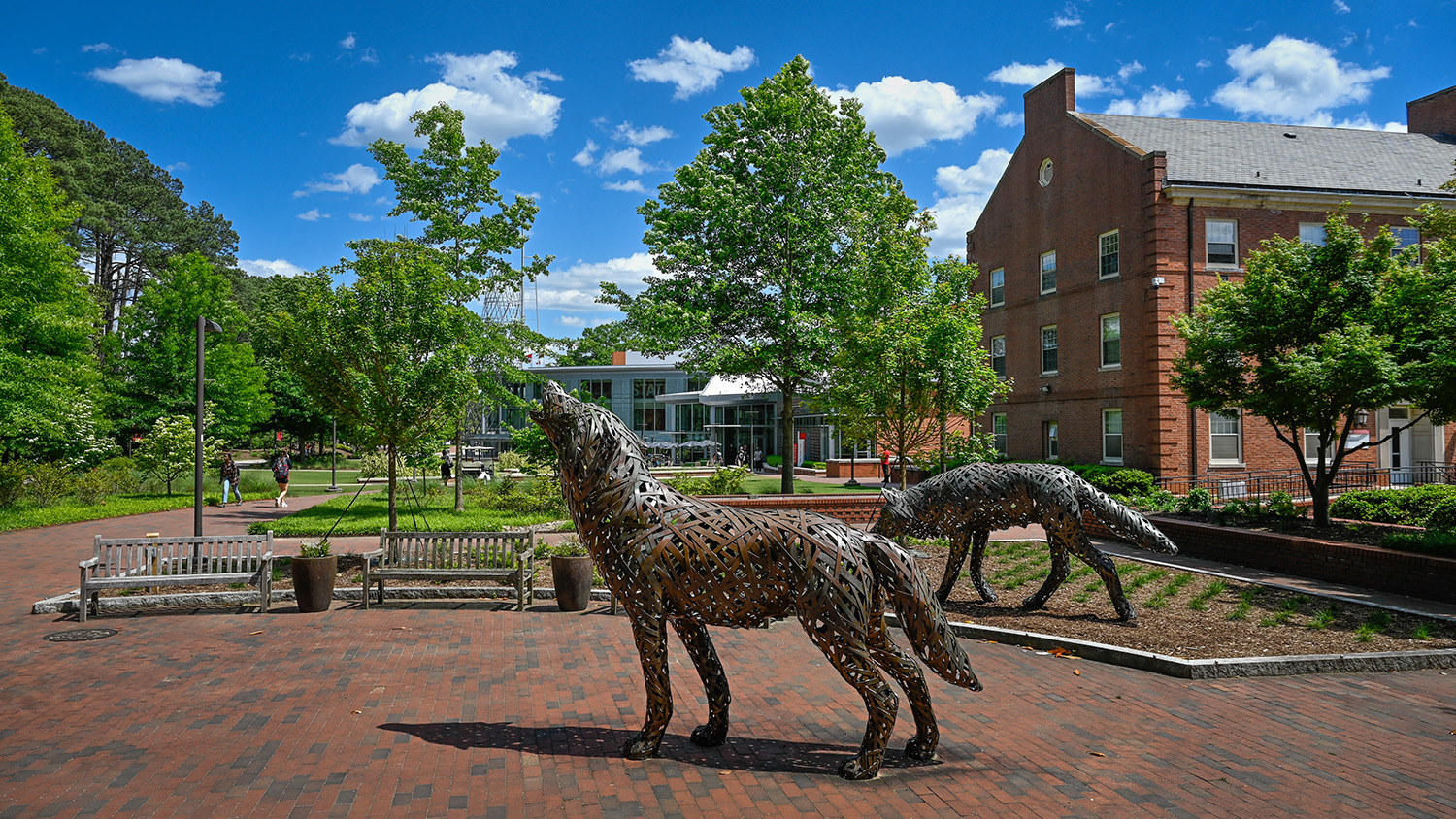Black History Month 2019: Meet Elan Hope and Blair Kelley
NC State professors examine black history — and black present — all year round.
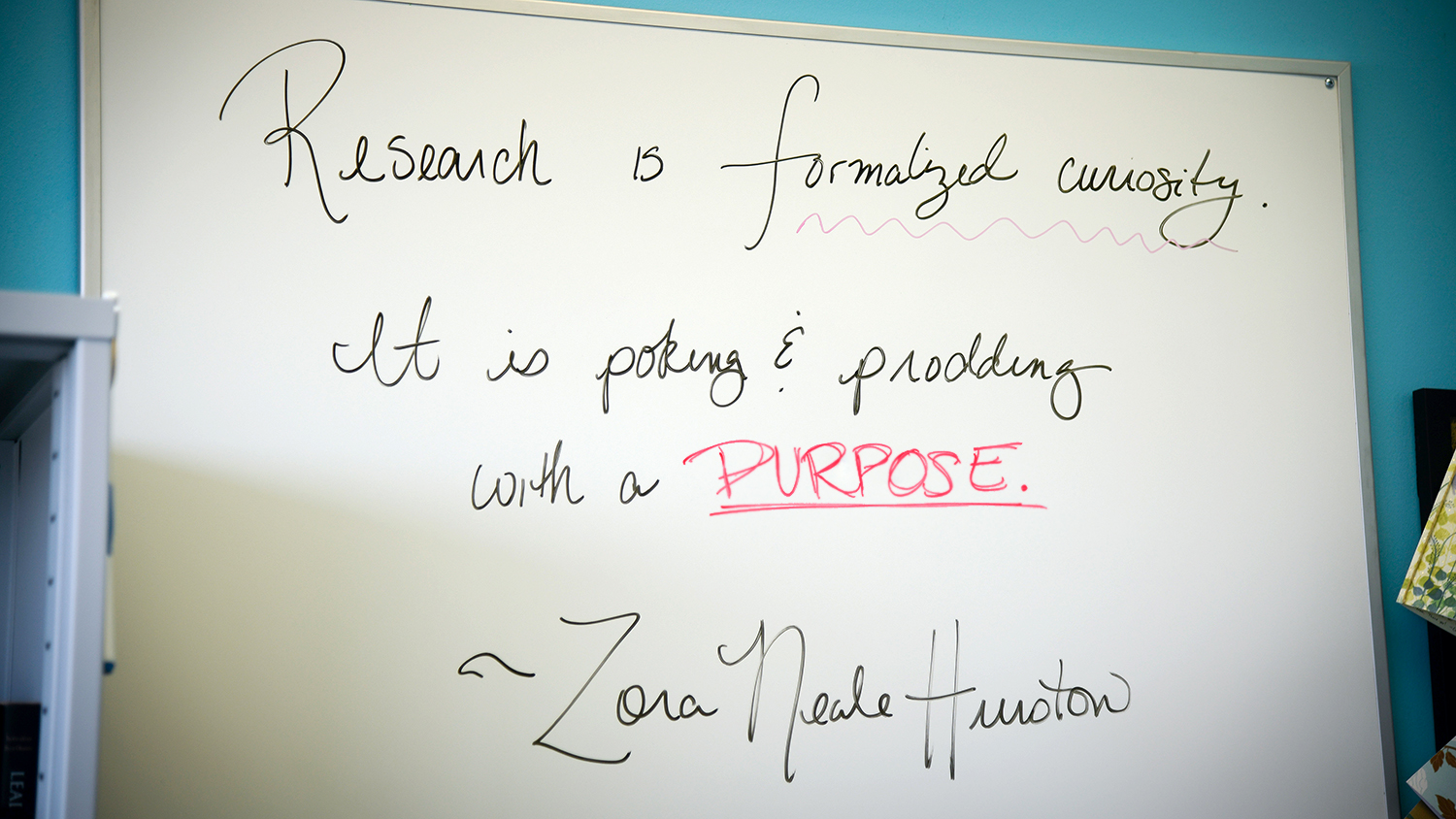
February is Black History Month, a vital opportunity to honor the legacies, histories and accomplishments of the global black diaspora. At NC State, you can join in dozens of events and celebrations across campus doing exactly that.
This month is also an opportunity to engage with scholars and thinkers for whom black history and the black experience are year-round, everyday concerns. It’s a chance to amplify live, ongoing issues alongside the many “firsts and facts” of Black History Month.
Below, you’ll meet two professors from the College of Humanities and Social Sciences — one rising, one established — whose teaching and research delve deeply into those issues, and who have their own rich insights into life at NC State.
Elan Hope, Psychologist
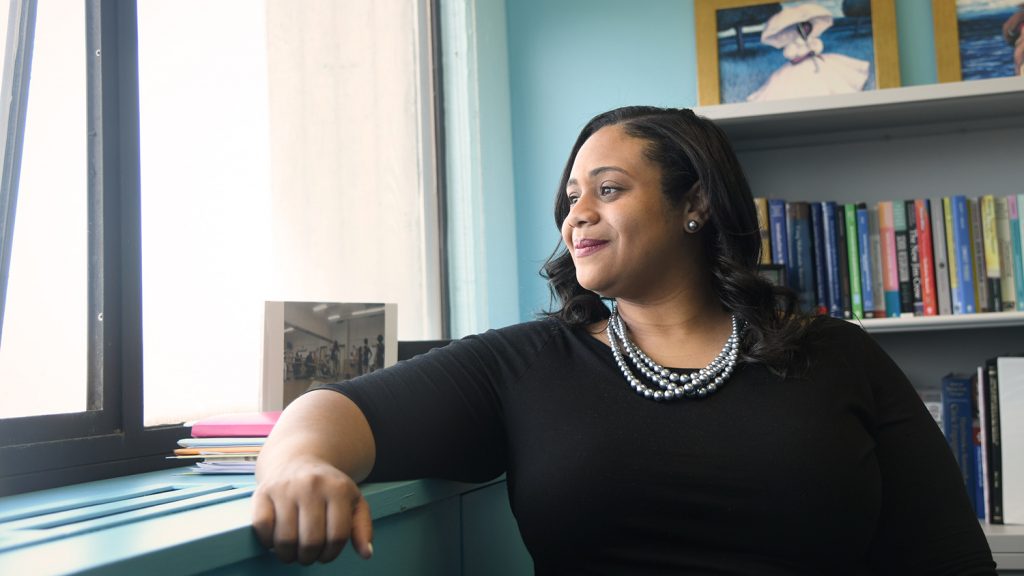
“Black youth have to grow up in this world and still do well, still thrive,” says Elan Hope, assistant professor in the Department of Psychology. “And so how does that happen? What are the individual qualities that are related to well-being? And what are those family and community qualities that are related to well-being? What helps black youth be successful?”
Hope set out to be an engineer, choosing Smith College, the home of the nation’s first accredited all-women’s engineering program. After 39 credit hours, she realized she loved the problem-solving nature of engineering — but not how engineers solve problems. She switched to psychology and never looked back.
Her mentors at Smith helped her discover her passion — the educational challenges facing marginalized youth — and guided her to grad school.
I’m not a scientist who’s in it for just the theory.
“I wrote my entrance essay around why some kids do well and others don’t, and what are the individual and contextual differences that matter,” Hope says. “Why were some kids from backgrounds like mine [Hope is from Prince George’s County, Md., one of the more affluent black communities in the U.S.] at MIT and Harvard and Hopkins, and others of us were barely holding minimum-wage jobs, when we all came from the same high school?”
The answer to that question is staggeringly complex. There are personal factors, contextual factors, institutional factors. Home environment, parenting and adult support, available resources, pervasive racism — all these things and more can affect the trajectory of a life. Hope employs both quantitative and qualitative methods to dig into what shapes our behavior, but she’s motivated by outcomes.
“Where there aren’t patterns that make sense, what are the lived experiences of people? And why are they making the choices they’re making, or not making other choices? And how can we apply what we learn to find solutions to real-life issues that people deal with on an everyday basis?”
In recognition of her work, Hope is among the first beneficiaries of the African American Cultural Center Faculty Fellowship Program, which provides support for NC State faculty members whose research explores African-American and African diasporic cultures.
“I was very excited that there’s some sort of institutional support for research, particularly that black faculty are doing, and that more than likely will impact black communities. To me, it was phenomenal even to see that it exists, and then to be chosen was even better. And I’m among a cohort of some amazing scholars here.”
“One thing that I do love about NC State is the academic freedom,” Hope adds. “We really can study what we believe are the next important things we need to know in the world. And I also love my colleagues, because even if they don’t study what I study — or don’t look like me, or even necessarily share the same concepts of social justice, or racism, or race — they’ve been so supportive and understanding of what I do and the importance of my work. And that’s not guaranteed in the academy at large.”
Hope’s advice for underrepresented students at NC State is to stay focused on their goals — graduation and life after college — and to seek out all the resources and support offered by the university.
“There are people on campus: Multicultural Student Affairs, the African American Cultural Center, different professors and classes you can take. Seek that community for the rough times. Because you have contributions that the world needs. Your voice is important.”
Blair Kelley, Historian
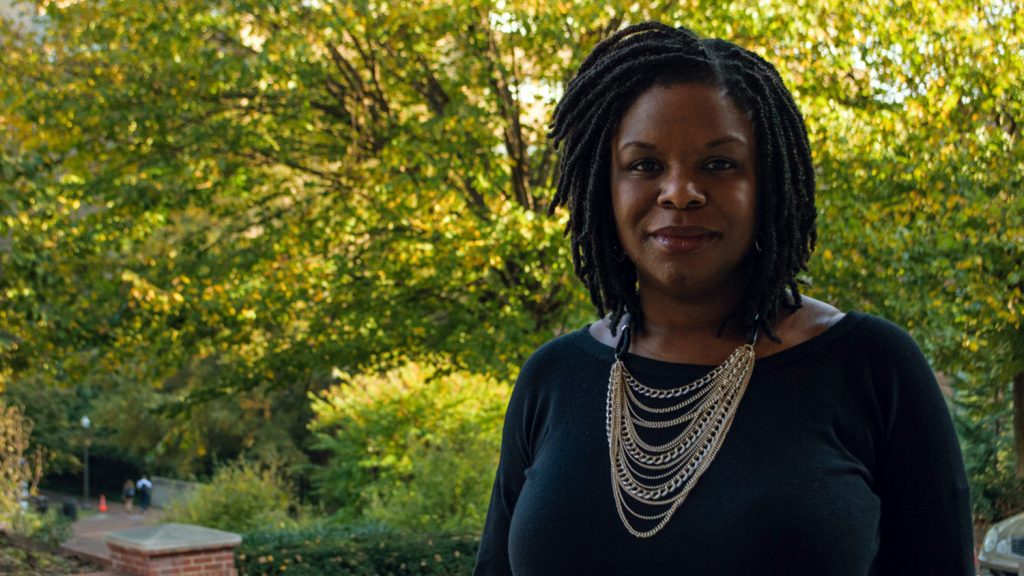
“So often, we hear about what African Americans weren’t able to do in the past — and that is quite real,” says Blair Kelley, associate professor in the Department of History. “Many generations were hindered by slavery, by segregation, by racial injustices. But in the meantime, they did lots of amazing things despite the challenges they faced. So I like to focus on the ‘in the meantime.’”
Across nearly two decades at NC State, Kelley has explored the history of the African-American experience as a whole, including the social movements, often forgotten or omitted, in which ordinary people reshaped their political world. Her first book, Right to Ride: Streetcar Boycotts and African American Citizenship in the Era of Plessy v. Ferguson, examines early segregation protests that prefigured the more heralded civil rights movement of the 1950s and ’60s.
Kelley’s love for history — and for the stories of lesser-known figures in the black freedom struggle — was born out of the tales and experiences of her own family. But she also insists on the importance of the historical lens for society at large, arguing that the discipline offers vital tools for tackling the issues of our time.
For me, history is practical.
“If I don’t understand our past, then I can’t understand what’s happening around me. When you think about the racial wealth gap, gentrification, inequality in our tax code, world dynamics or global currents, the kinds of arguments that are on the news every day … History is a map to understand how we got here, and how we can avoid making the same mistakes, at least blindly. It helps us build a consciousness about what was limiting — and what was possible — in our past.”
Kelley’s time at NC State has helped her form a deep appreciation for the university’s role as an educator for many working-class, first-generation or underrepresented students.
“We’re a land-grant,” she says. “We’re here to serve, to provide education for people who otherwise wouldn’t have opportunities. And when we educate NC State students, we know we are making a difference. They’re from every socioeconomic background, every walk of life, from rural communities, urban communities. It’s wonderful to make a world available to them.”
In Kelley’s case, “making a world available” is often literal: She serves as the assistant dean for interdisciplinary studies and international programs for the College of Humanities and Social Sciences, and she has played a key part in making overseas study more available to underrepresented students through the college’s Travel Scholars program.
“We know that study abroad has an impact on all students,” says Kelley. “It makes them want to stay in school, it makes them excited about their major, it gives them better job prospects. So I knew that everybody, of all backgrounds, needed access to it.”
Kelley says becoming an administrator has deepened her appreciation for her college and its innovative programs, for its dean and faculty, and for the critical thinking skills gained by graduates of the humanities and social sciences.
“We have some phenomenal faculty who really offer the tools by which students can understand the past and grapple with what we’re confronting right now,” Kelley says. “We’re not proselytizing to our students; we’re giving them the tools to understand the world for themselves. So when they face the world, they can make their own judgements and decisions about what they see and what they think.”
Her advice for students at NC State is to throw themselves into the entirety of what the university offers — to “engage fully in the place where they are.”
“College should be busy and rich and full of interconnections and friendships with like-minded people — and people who are not like-minded,” Kelley says. “Join organizations and be part of a campus as a whole, because we are enriched by that engagement, and students will be, too, if they put their whole hearts into it.”
